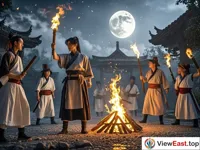
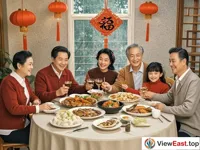
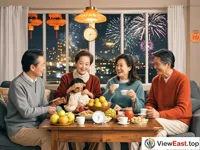
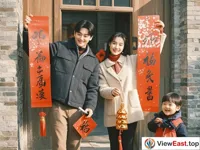
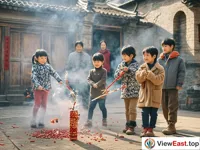

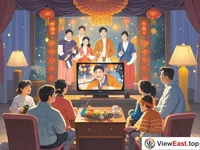
Chinese New Year's Eve, the eve of the Chinese Lunar New Year, is one of the most important traditional Chinese festivals. On this day, the Chinese people celebrate the end of the old year and the beginning of the new year through a series of colorful customs.
I. Historical Origin of Chinese New Year's Eve
The customs of Chinese New Year's Eve can be traced back to ancient exorcism activities. It is believed that by performing these activities, people can drive away the misfortunes of the past year and welcome the auspiciousness of the new year.
II. Traditional Customs of Chinese New Year's Eve
Reunion Dinner: On New Year's Eve, families gather for a sumptuous dinner, which is the most important meal of the year.
Staying Up Late: Family members stay up all night to welcome the New Year's bell, symbolizing the farewell to the old and the welcome of the new.
Posting Spring Couplets: Every household pastes red spring couplets on their doors, implying good fortune and best wishes.
Setting Off Firecrackers: Firecrackers are set off to drive away evil spirits and welcome the arrival of the New Year.
Giving Red Envelopes: Elders give red envelopes to younger family members, symbolizing blessings and good luck.
III. Modern Evolution of Chinese New Year's Eve
With the development of society, the ways of celebrating Chinese New Year's Eve are also becoming modernized:
Spring Festival Gala: Watching the Spring Festival Gala has become an important activity for Chinese families on New Year's Eve.
Social Media Greetings: People send New Year's greetings through social media, sharing joy with relatives and friends far away.
Traveling for the New Year: Some families choose to travel during the Spring Festival to experience a different way of celebrating the New Year.
IV. Cultural Significance of Chinese New Year's Eve
Chinese New Year's Eve is not just a holiday; it also carries the Chinese people's desire for family reunion and their hope for a better life in the future.